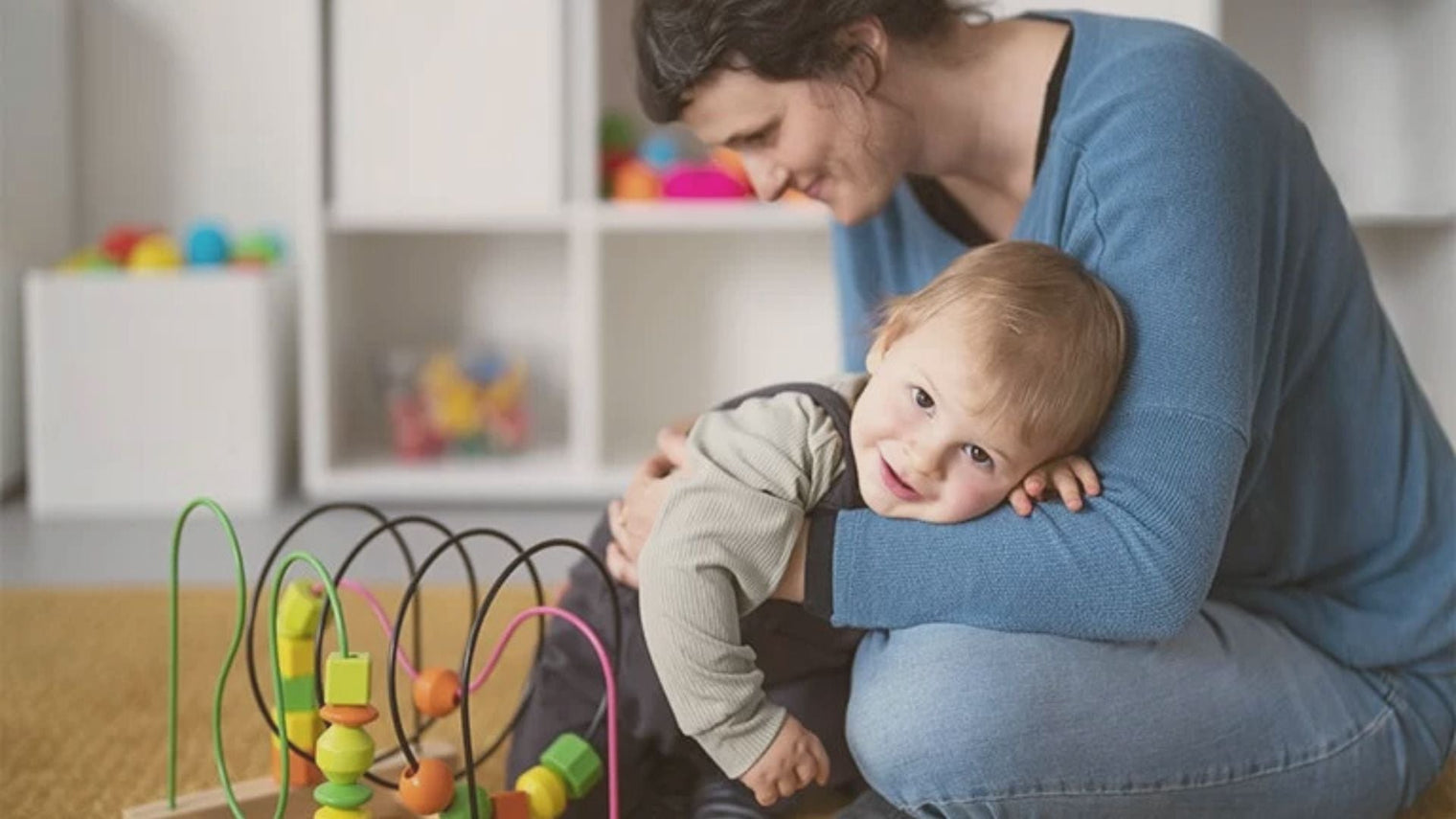As parents, we naturally want to see our children thrive—taking their first steps, saying their first words, or mastering skills like stacking blocks and drawing shapes. But sometimes, milestones don’t happen exactly when we expect them to.
That can lead to questions and even worry: Is my child just on their own timeline, or could there be a developmental delay?
Recognizing the signs early matters because it allows parents to access support, resources, and interventions that can make a real difference.
Developmental delays are more common than many people realize, and spotting them sooner rather than later can help children catch up, build confidence, and unlock their full potential.
In this post, we’ll explore the signs of developmental delays, why they matter, and what parents can do if they have concerns.
What Is a Developmental Delay?
A developmental delay means that a child isn’t meeting certain milestones within the typical age range. These milestones include skills related to:
-
Speech and language – using words, forming sentences, understanding instructions
-
Motor skills – crawling, walking, holding objects, drawing
-
Social and emotional growth – interacting with others, expressing feelings, adapting to new situations
-
Cognitive skills – problem-solving, learning, memory, focus
It’s important to note: every child grows at their own pace. A delay doesn’t automatically mean a lifelong condition or disability—it could simply mean a child needs a little extra support in certain areas.
Common Signs of Developmental Delays
1. Speech and Language Delays
By age one, most children are babbling, making sounds, and maybe even saying simple words like “mama” or “dada.”
By two, many are combining words into short phrases.
If a child is much quieter than expected for their age, struggles to imitate sounds, or doesn’t respond to their name, these could be signs to watch.
Examples of what to look for:
-
Limited vocabulary by age two
-
Difficulty following simple directions
-
Speech that is hard to understand compared to peers
2. Motor Skill Delays
Motor skills include both gross motor (big movements like crawling, walking, running) and fine motor (small movements like picking up a spoon or stacking blocks).
Delays here might show up if a child is not walking by 18 months, has trouble holding objects, or avoids activities requiring coordination.
Examples of what to look for:
-
Trouble holding or using utensils
-
Difficulty sitting up without support by 9 months
-
Unusual stiffness or floppiness in muscles
3. Social and Emotional Delays
Children start showing social cues very early—smiling at familiar faces, showing interest in play, and later, pretending during playtime.
If a child avoids eye contact, doesn’t show interest in interacting with others, or struggles with emotional regulation beyond what’s typical, it may indicate a delay.
Examples of what to look for:
-
Not smiling or showing joy by 6 months
-
Not engaging in simple interactive games (like peek-a-boo) by 12 months
-
Limited interest in other children by preschool age
4. Cognitive Delays
Cognitive development includes problem-solving, learning, and memory skills. A delay here might look like trouble remembering routines, difficulty focusing on tasks, or struggling to understand cause and effect.
Examples of what to look for:
-
Not recognizing familiar people or objects
-
Struggling with puzzles or age-appropriate games
-
Limited ability to follow routines or multi-step instructions
Why Early Recognition Is Important
The earlier a delay is identified, the sooner families can access support such as speech therapy, occupational therapy, or specialized early learning programs.
Research shows that early intervention can significantly improve outcomes—helping children develop skills faster and with less frustration.
It also helps parents. Understanding what’s going on reduces stress and uncertainty, giving families tools and strategies to support their child’s growth.
What Parents Can Do
- Trust Your Instincts – If something feels off, it’s worth exploring. You know your child best.
- Track Milestones – Keep a simple journal of when your child reaches different milestones. This can help doctors see patterns.
- Talk to Your Pediatrician – They can guide you through screenings or refer you to specialists if needed.
- Seek Support Early – Early intervention programs, therapists, and parent support groups can all play an important role.
- Create a Nurturing Environment – At Dannico Woodworks, we believe a child’s environment plays a big role in their development. Simple things like having furniture they can use independently—a step stool for brushing teeth, a child-sized table for drawing—fosters confidence and growth.
FAQs
Should I be worried if my child isn’t walking by one year?
Not necessarily. While many children walk around their first birthday, some take up to 18 months. Talk to your paediatrician if you notice delays alongside other concerns, like not crawling or standing with support.
My child isn’t talking much at age two. What should I do?
It’s worth mentioning to your paediatrician. Some children are “late talkers,” but an evaluation can rule out hearing issues or speech delays and provide support if needed.
Do delays mean something is “wrong” with my child?
Not at all. A delay simply means skills are developing at a different pace. With the right support, many children catch up quickly.
How can I help my child at home?
Play-based activities, reading daily, giving opportunities for independent exploration, and creating routines all help. Tools like child-sized furniture also encourage independence in everyday tasks.
Creating an Environment That Supports Growth
At Dannico Woodworks, we understand how important it is to give children the right tools and environment to succeed. That’s why we design furniture that promotes independence, creativity, and confidence.
From sturdy step stools that let your child wash their hands by themselves, to activity tables where they can learn and play, each piece is built with child development in mind.
We believe that when children feel empowered in their daily routines, it helps them reach milestones with greater confidence.
Final Thoughts
Spotting developmental delays early isn’t about labeling children—it’s about giving them the best chance to thrive.
If you have concerns, trust your instincts, seek guidance, and remember that with the right support, children are incredibly resilient.
And as you think about your child’s growth, ask yourself: What small changes could I make at home to give my child more independence and confidence in their daily routine?

